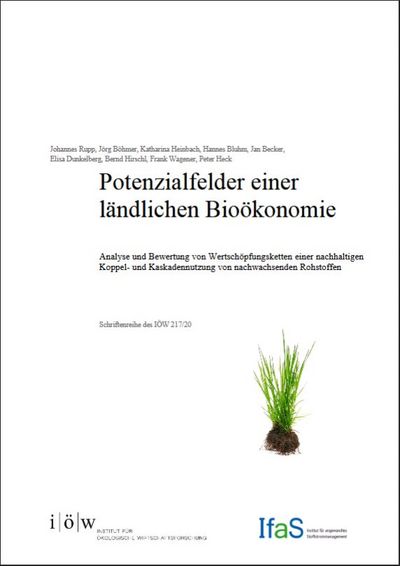Future Potentials of a Rural Bioeconomy Analysis and Assessment of Value Chains of a Multiple and Cascade Based Usage of Renewable Raw Resources
The goal of the National Policy Strategy on Bioeconomy is to prepare the way toward a more sustainable economy, one increasingly based on sustainably produced and renewable resources, including biogenic residues and waste materials. In this context, the research project “Future Potentials of a Rural Bioeconomy”, funded by the Federal Ministry of Food and Agriculture (BMEL), pursued the goal of identifying areas of potential economic opportunity for a rural bioeconomy in Germany, taking into account technical, economic and ecological aspects. This report presents the main results of the project.
We use the term “rural bioeconomy” to characterize the further development of a bioeconomy in which rural areas are not only seen as suppliers of raw materials in an industrially-based bioeconomic concept, but also themselves increasingly promote the implementation of decentralized approaches.
Within the bioeconomy exists a tremendous diversity of raw materials, value chains and products. The focus within the project was on specific areas primarily based on agricultural biomass. By means of an iterative, criteria-based selection process, we chose three value added chains for further investigation. These are:
- Fermentation residue treatment for improved fertilizers and fiber for wood substitutes
- vegetable fiber (hemp) for insulation and natural fiber-reinforced plastics (NFRP) and
- vegetable fiber (grass) for the production of paper and cardboard
For each of these value chains, a technology and infrastructure analysis, an economic assessment, a calculation of value added and employment in rural areas as well as an ecological assessment were carried out.
On the basis of the project results and a large number of interviews and events, we established recommendations for best practices and the design of an appropriate political and legal framework.



